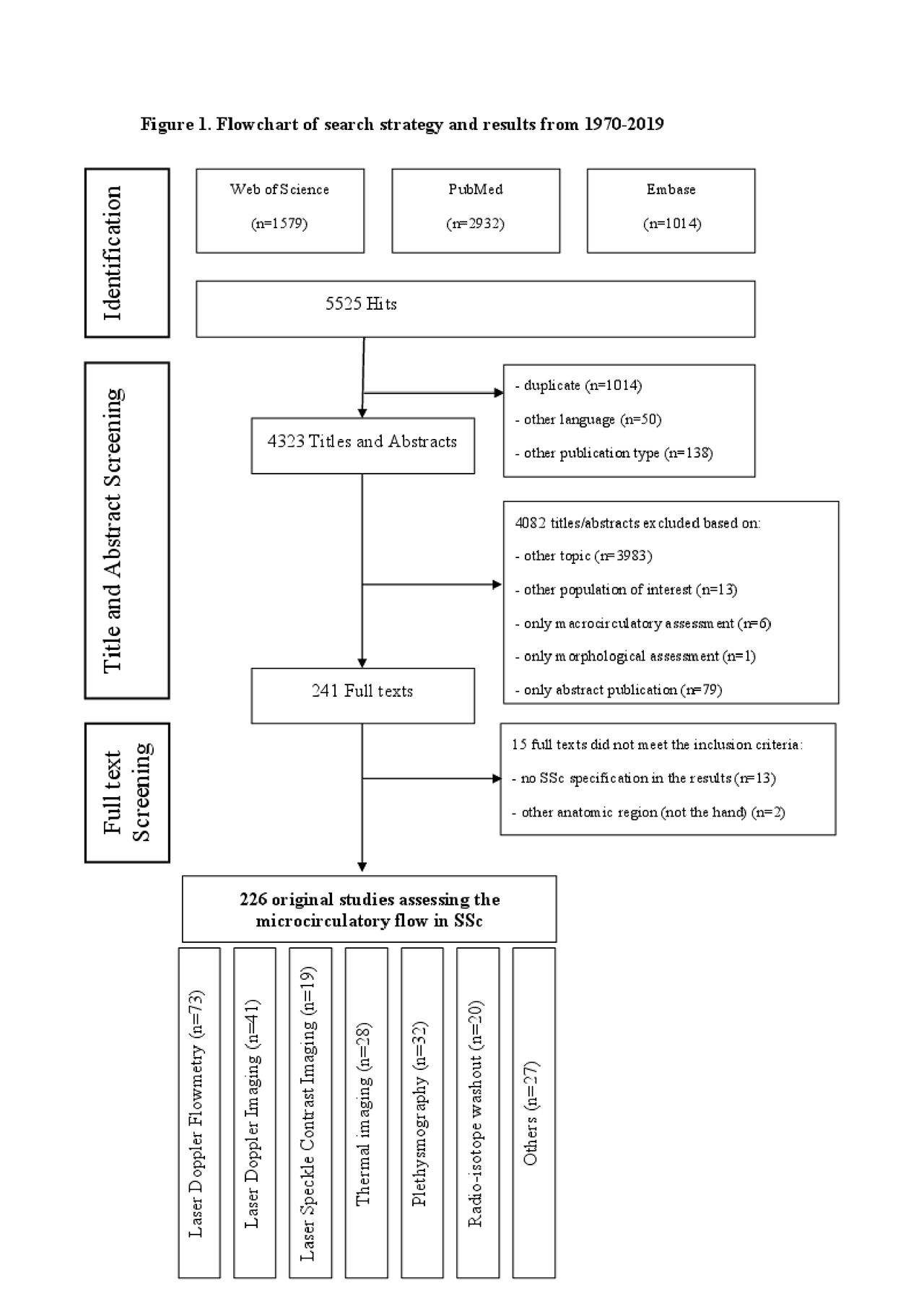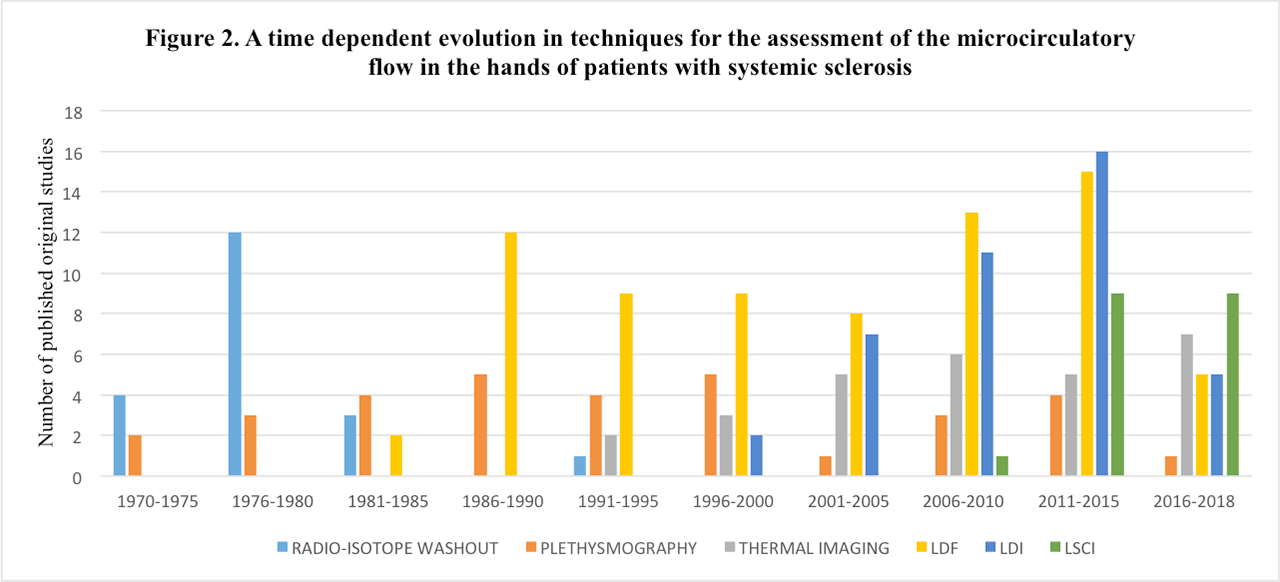Session Information
Session Type: Poster Session (Sunday)
Session Time: 9:00AM-11:00AM
Background/Purpose: Systemic sclerosis (SSc) is a chronic, auto-immune disease characterised by a widespread vasculopathy. There is a high need to obtain validated outcome measures for use in clinical and research setting. The last decades numerous techniques have been developed to quantify the microcirculatory flow in the hands of patients with SSc-related digital vasculopathy. The aim of this study is to give a time related overview of the different techniques used to assess the microcirculatory flow in SSc.
Methods: A systematic search was done on the 21st of January 2019 by two reviewers in PubMed, Embase and Web of Science to detect all original studies assessing the microcirculatory flow in SSc patients. Studies including only the morphological aspects of the microcirculation were excluded. The resulting publications were sorted in the following groups: radio-isotope techniques, plethysmography, infrared thermal imaging, laser doppler flowmetry (LDF), laser doppler imaging (LDI) and laser speckle contrast imaging (LSCI). A time dependent evolution in publication rate per technique was evaluated.
Results: The systematic literature search resulted in 4323 hits. After title and abstract screening 241 original studies were retained. Finally, 15 more full texts were excluded because there were no details of their results on SSc or the region of interest was different (fig 1). The majority of the publications reported on LDF (n=73), though in the last decade emerging techniques are LDI (n=41) and LSCI (n=19). There is a peak in publication rates between 2011 and 2015, especially concerning the laser doppler based techniques. Infrared thermal imaging was steadily investigated in the past 20 years. LSCI is the last upcoming technique with publication rates that are growing in comparison to other techniques (fig 2). Photoacoustic imaging and optical microangiography are two related novel techniques, which are in the pipeline to assess the microcirculatory flow in SSc patients.
Conclusion: This systematic review reveals in a visual way the change in publication rates per technique, and indirectly the change in ongoing investigations concerning the objective quantification of the microcirculatory flow in SSc. The results are in favor of the LSCI technique, which is increasingly being used compared to other techniques.
Ackowledgment: This literature study was performed on behalf of the EULAR studygroup on microcirculation in rheumatic diseases.

Flowchart_different instruments_20190603
To cite this abstract in AMA style:
Melsens K, Vanhaecke A, Van Eenoo W, Cutolo M, Smith V. Imaging Technique (R)evolution to Measure the Digital Microcirculatory Flow in Systemic Sclerosis: A Systematic Review [abstract]. Arthritis Rheumatol. 2019; 71 (suppl 10). https://acrabstracts.org/abstract/imaging-technique-revolution-to-measure-the-digital-microcirculatory-flow-in-systemic-sclerosis-a-systematic-review/. Accessed .« Back to 2019 ACR/ARP Annual Meeting
ACR Meeting Abstracts - https://acrabstracts.org/abstract/imaging-technique-revolution-to-measure-the-digital-microcirculatory-flow-in-systemic-sclerosis-a-systematic-review/

